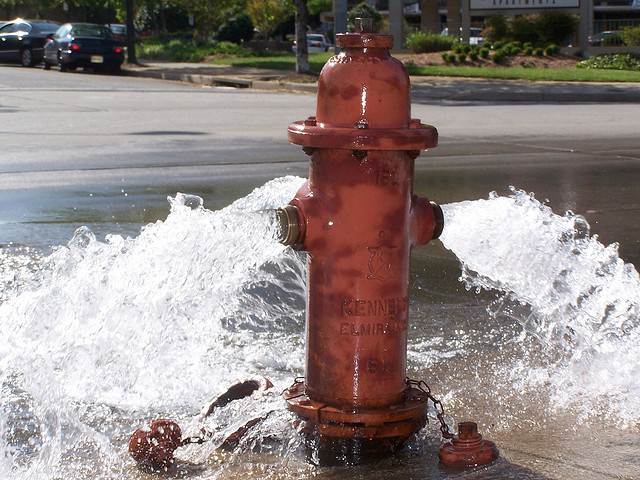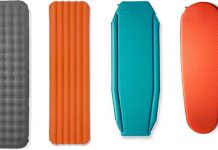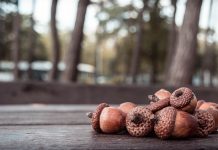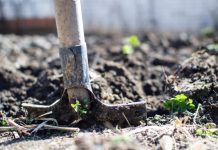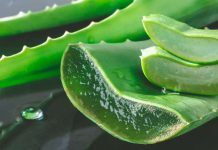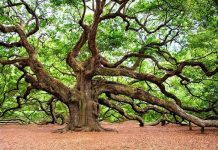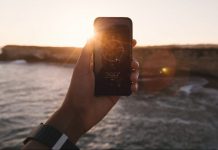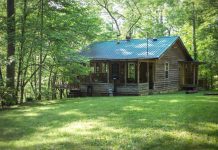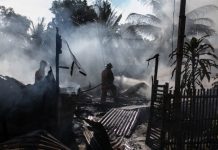When it comes to a post-SHTF situation; one of the most critical resources you will need is fresh water that can be filtered for drinking. If you live in a more rural area or own a home with a little bit of land; you may have a well; spring; or other fresh water source on your property. But for the rest of us; storage space for water may be limited. If water to our home stops flowing for whatever the reason; our water stockpile will deplete quickly.
This is especially the case for those that live in apartments; condos; housing allotments; or senior retirement or assisted living complexes. City folk need to know in advance where the places to find water in the city post-SHTF are located. Identifying and mapping out these water sources will save us critical time and energy when it comes time to collect water to filter post-SHTF. Knowing multiple places to find water in the city could be the difference between survival and death.
1. Public Fountains
If water is off to your home or neighborhood due to a natural disaster or SHTF event; public fountains in nearby areas that still have public water can be an option. Always filter and boil water that you collect from public areas to stay on the safe side.
2. Outside Water Spigots on Businesses or Gas Stations
When the water to your apartment or condo is disrupted; you may be able to still find some water by trying outdoor water spigots on businesses; gas stations; or other closed or abandoned buildings.
3. Do It Yourself Car Wash
Think about this one. What’s more plentiful at a car wash than water? To take advantage of this possible place to find water in the city post-SHTF; you’ll need to keep a supply of quarters at the ready. If power and public water is out only in your neighborhood or area; a quick run to your local DIY car wash may supply some water.
4. Community Swimming Pools
Organizations such as YMCA’s; country clubs; and other recreational buildings with community swimming pools can be a source of water in a pinch when power and public water outages are widespread. Hundreds of gallons of water could be just a few blocks away. Sure; you’ll need to filter and boil it to remove pool chemicals and other potential contaminants; but it’s better than no water at all.
5. Retention Ponds Near Large Businesses
Public and sometimes government properties such as industrial businesses; apartment complexes; hospitals; college campuses; and nursing homes use retention or detention ponds to help manage flooding and storm water runoff. These ponds can vary in size and shape; but they are designed to hold excess water for a brief time or a more permanent time.
Retention ponds filter water somewhat before letting it drain into a nearby river or stream and will always have a good amount of water in them. Detention ponds on the other hand are only made to hold storm water surge and excess water for about twenty-four hours following a storm. They will dry up in between storms.
It’s important to know that both retention and detention ponds capture all the water runoff following storms. This means water coming from the street drains; parking lots; etc. flows into them in order to prevent flooding of roads; properties; and streams or rivers. Water in detention ponds is very unpredictable and is highly contaminated. It should be avoided.
If you must collect water from a retention pond; find the place in the pond where the water drains into the nearby stream or river. Collect water from as close to this drain as possible and on the side of the stream or river if accessible. Water is somewhat filtered before it enters the river or stream; so it will be cleaner. But it is still not safe to drink. You must absolutely filter; boil; and whenever possible distill water if collected from a retention pond.
6. Lakes or Creeks in Public Parks
When public water and power are knocked out in a widespread area that includes businesses and other buildings; consider lakes or streams in your local public park as alternatives. You’ll likely need to bring along a hand operated pump and collection container but hey with a little effort you can replenish your water supply.
To be on the safe side; try to collect water upstream from any walk bridges or other areas where water might have been contaminated. Do not use water for drinking until you filter properly and boil to remove any contaminants.
7. Streams or Rivers
For those who live in a city with streams or rivers winding their way through; these can be a source of water when other options are unavailable. When feasible; collect water as close to the head of the stream or river as possible and upstream from any potential runoff sites such as factories; chemical plants; junkyards; auto repair shops; garbage dumps; sewage treatments plants; etc.
8. Vending Machines and Office Water Coolers
One of the places to find water in the city post-SHTF that many people may not consider in their looting escapades; are vending machines outside of local businesses and recreation centers. Most vending machines today include bottled water as well as other beverages and snack foods. Many offices also have water coolers located in their lobby or staff lounge.
If power is working; a pocketful of quarters that you’ve stockpiled could get you some much needed water and nourishment. Looting and vandalism is illegal and in most circumstances unnecessary. But if power is out and you and your family are at risk of dehydration; you bring along your crowbar or other tool and do what you need to do.
9. Nursery Businesses
When it comes to water; very few places will have a better setup than businesses whose main goal is to grow plants and flowers. Their livelihood depends on having water available to keep their products growing and healthy. This means they may have automatic generators that kick in for temporary and short-term power outages.
Some water may still be flowing at these places; even when it stops everywhere else. Keep in mind that trespassing is also illegal and should only be used as a last resort option in a life-threatening situation; such as a post-SHTF situation.
10. Hotels or Businesses with Pools
Hotels or businesses with outdoor (or even indoor) pools are on the list because they are a source of water that most people won’t think about. This means not only will you be able to collect water; you may not have to risk hordes of other people trying to get a quickly dwindling supply of bottled water like at a grocery store.
Some hotels or businesses may still be unlocked or even open for business and you can simply plead your case with staff and get permission. As a last resort; bring along your bolt cutters to assist with a locked chain or gate. Again; not condoning trespassing or breaking and entering but when SHTF; it’s a fair bet that following the letter of law isn’t going to worth dying over.
Now that you know some of the places to find water in the city post-SHTF; below are some tips and safety reminders for storing and collecting water.
Storing; Collecting; and Purifying Water
- Identify and map out potential sources of water within your city and neighboring areas BEFORE a SHTF event is upon you. Time will be of the essence; you may be racing against others in the area to find water for your family. Your transportation and energy levels may be limited so getting to and from water sources quickly could be critical.
- Always properly filter AND boil water whenever feasible. Include a stainless-steel pot or other fireproof container in case you need to boil water on the go over a fire.
- Filtering water removes larger contaminants; dirt; and debris but not harmful bacteria; organisms; and contaminants.
- Boiling water at a rolling boil for 1-3 minutes (depending on elevation of your location) will remove much of the microscopic bacteria; organisms; and contaminants. Boiling alone does NOT remove heavy metals and all harmful contaminants.
- When in doubt; filter; boil; and then distill and collect condensation.
- Your BOB or get home bag (GHB) should always contain materials to collect; carry; filter; boil; and purify water.
- Any water that has not been filtered; boiled; and otherwise purified should not be used for drinking; cooking; or personal hygiene tasks.
Knowing which places to find water in the city post-SHTF will be critical to the survival of you and your family. The more you know about the area you live in and the location of potential water sources; the better prepared you will be to provide for your family. But drinking water from unfamiliar sources comes with its own risks. To be properly prepared to take advantage of natural resources; you must also know how to properly collect; filter; purify; and store water safely.



